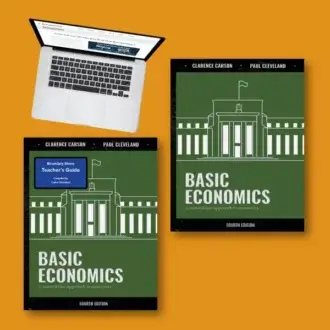In Romans chapter twelve the Apostle Paul tells us not to be conformed to the pattern of this world, but to be transformed by the renewal of our minds. The question I would like to raise is, “What does this look like in practice?” At the core I think we can all agree that it means we should be students of God’s Word. That is, God is calling us to know His Word. However, I think the admonishment goes beyond this. Indeed, we must be able to apply the principles of Scripture to the various facets of daily life if we are to fully implement the command. In this regard, I’m afraid that we may well be falling far short of our duty.
In my own area of study, which I would call political economy, it seems to me that most Christians think about the purpose of government and the workings of the economy just like any unbeliever. To make my case I think it would be good to consider the foundational moral philosophy upon which modern day economics is taught. Behind both macroeconomics and microeconomics as it is most often taught, both at the high school and college levels, stands the moral philosophy of utilitarianism. This philosophy argues that government policies should be based on a hedonistic calculus. In other words, our laws and policies should be chosen based on whether or not they promote the greatest human happiness and not on whether or not they are consistent with any eternal moral order established by God. As a result, all political debate today tends to center around a discussion of costs and benefits without regard to any moral absolutes. As a general rule, do Christians see the difference that it makes? If so, do they engage culture with their alternative perspective?
Let’s consider one example. Modern day economists generally agree that if there is only one producer of a product that it is incumbent upon government to aggressively regulate that company to control the price at which it can sell it. The question is, does this position square with what the Bible teaches about property? In essence, this policy says that the individual producer is not free to produce and trade his own property on terms that he finds agreeable. In other words, the utilitarian argument says that government is justified in forcing that producer to do something he otherwise would not do. Is justice being served in such mandates? What claim can consumers make on the property of someone else?
If I produce a particular product, and it turns out that I can do it better and for a lower price than others so that I attract all the customers for it, is this a sufficient reason to violate my rights to my property? Isn’t the eighth commandment simply a prohibition on violating property? It would be one thing if my position had been guaranteed by government mandate thus prohibiting any other potential producers, but it is quite another if this was simply the result of an ongoing market process. In the first case the correct government action would be to cease and desist since it is not the ruler’s job to rule with prejudice. God clearly instructs rulers in this world to act impartially. However, modern micro modeling would see fit to use government action to penalize people and companies for being good at what they do in the name of promoting the so-called “common good”.
Can you see the difference? Do you understand why the difference exists in the first place? Do you understand where the modern micro theory came from and why it is inconsistent with God’s commands? If you uncritically accept the modern stance, then you are looking at the world the same way that unbelievers look at the world. This follows because the moral philosophy of utilitarianism that is implicitly embedded in the analysis was born in, and is inherently tied to, atheism. In the early nineteenth century, it was Jeremy Bentham who first argued for utilitarianism. In doing so Bentham was intentionally rejecting God’s moral law and the very concept that there is a natural moral order that gives rise to inherent individual rights such as life, liberty, and property. Instead, he promoted his own unbelief in the field of political philosophy.
The study of economics before Bentham had been dominated by natural law theorists. These academics were basing their arguments on the idea that there are objective moral precepts that should be adhered to if the economy is going to function well. It was on this basis that they challenged special government privileges given to some and prohibiting others from engaging in economic activities. Thus, unlike modern economists, they saw that an adherence to a natural order where each individual’s private property was protected would give rise to a market process that would be mutually beneficial. If Christians are going to be serious about their faith, we simply must begin to do the heavy academic lifting of discerning the difference it makes between the way the world sees things and the way Jesus sees things. This means we must learn to apply the Scriptures accurately to the way we understand various issues that arise in everyday life. It’s all about the way you think.







0 Comments